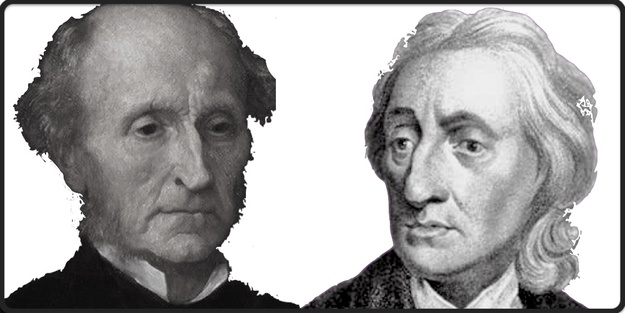Two Liberalisms: Mill vs Lock
I want to suggest an idea from an observation that’s been made many times before. Namely, that what the modern center-left now likes to call “classical” and/or “social” Liberalism, is a muddle of two strains of thought in the Enlightenment, that both stand in opposition to Rousseau; but that the latter strain smuggles him back in through the kitchen door.
The division in the Enlightenment between Rousseau and Hobbes is so famous it’s practically a cliché at this point. Is human nature fundamentally good, or fundamentally bad? Is society a super-organism with a sovereign head, or a collection of self-interested agents, who need to be threatened to stay in line? Those debates will continue ad nauseam, I am sure. That’s not what I mean by the title of this post. Rather, I want to explore the distinction between Locke and Mill. It is THIS distinction that, I think, identifies the lanes of separation we see between American libertarianism, and American liberalism (or “classical liberalism”, and “social liberalism” ).
